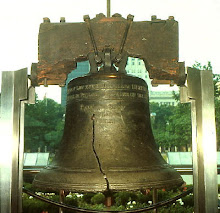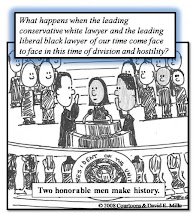
By JULIE KAY
Special to The Miami Herald
Special to The Miami Herald
How bad is the law business right now? So bad that Hollywood attorney Fred Hochszstein had to lay off his own wife.
Emily Harrison-Jolly, who practiced in Hochszstein's small downtown Hollywood office, specializes in real estate -- an area of the law that is practically dead these days.
So Hochszstein is now a solo practitioner, trying his best to pay the bills by doing what few wills and estates come through his door -- and spending a lot of time on volunteer work for his temple, where he sits on the board of directors, while also looking for teaching gigs.
''I've never seen it this bad,'' said Hochszstein, whose other specialty -- legal review of car dealer ads -- is now nonexistent. ``I'm just trying to ride it out until things improve. But my wife is pretty frustrated.''
Like most sectors of the economy, law firms have been hit by the economic downturn, and the pain is being felt differently depending on the size and specialty of the firm.
The hardest hit firms seem to be the smallest, the solo practitioners with only one specialty and a dwindling clientele -- and the very largest, the mega-firms with large overhead, fancy offices and lots of expensive associates.
The litigation boutiques -- mid-size or smaller firms with a few, recession-proof specialties and little overhead -- appear best positioned to not only ride out the storm but capitalize on it. Specialties weathering current conditions well, experts say, are insurance defense, labor and employment, plus personal injury cases.
''Before this is all said and done, law firms are going to learn a painful lesson, which is diversification,'' said Joe Ankus, a legal headhunter with Ankus Consulting in Weston. ``The boutiques who specialize in corporate and real estate work and didn't save for a rainy day, they're feeling pain. There is no question there are going to be more firm failures, attorney layoffs and a trend toward marketplace destruction.''
By capitalizing on corporate merger and acquisition activity, booming real estate and robust healthcare, labor and employment and litigation practices, South Florida lawyers and law firms rode high in the last decade. Law firms paid up to $160,000 a year for top first-year associates. Legal recruiters worked overtime placing clients.
Out-of-town firms scrambled to open up offices in South Florida, seen as the gateway to Latin America. Firms like Chicago's Arnstein & Lehr, Ohio's Roetzel & Andres, Orlando's GrayRobinson and even Los Angeles' Johnnie Cochran (the now-deceased lawyer of O.J. Simpson fame) opened South Florida outposts in the last five years.
Then the recession hit, and work slowed. Firms began shedding attorneys in earnest in the last few months, firms like Holland & Knight, White & Case, Epstein Becker & Green and Edwards Angell Palmer & Dodge.
According to the federal Bureau of Labor Statistics, the legal sector lost 4,200 jobs in February and 1,300 in January. As of March 6, there have been more than 7,241 layoffs (3,045 lawyers and 4,196 staff) since Jan. 1, 2008, according to the website Layoff Tracker.
Additionally, firms have told already-hired summer associates -- the traditional training ground for law students -- to stay home.
HOLLAND & KNIGHT
One of the largest law firms in South Florida, the 1,150-lawyer Holland & Knight, had its first round of layoffs in May 2008 and its second round last month. The cuts, which eliminated 70 lawyers and 243 staffers, came on the heels of the National Law Journal's reporting that the firm was among only three of its top 100 to see a drop in revenue in 2008.
I would like to add my two cents, which is about all I hear that anyone is earning lately. Business is real bad, especially for the smaller firms who work with individuals that still need counsel, advice and legal work but cannot access credit cards or credit lines to pay for those services anymore. So it is not that the work load is down. It is that the access to capital has dried up. And until it gets better this economy is going to deteriorate and hurt more and more good people.
































No comments:
Post a Comment